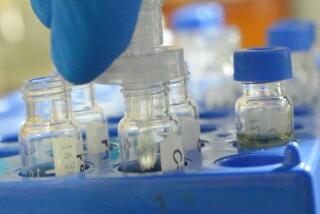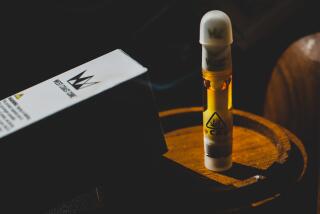U.S. Ends Cigarette Testing, Will Accept Tobacco Industry’s Data
- Share via
WASHINGTON — Federal testing of cigarettes for tar and nicotine is ending after 21 years, the Federal Trade Commission announced Wednesday.
Commission Chairman Daniel Oliver said the agency program, which costs about $200,000 annually, duplicates information available from the industry.
The action was immediately criticized by the American Lung Assn., which campaigns against smoking.
‘Don’t Trust Them’
This action puts the measurement of tar and nicotine into the hands of the tobacco companies, said association spokeswoman Karen Monaco, and “we certainly don’t trust them.”
In general, she added, the measurements have been misused, because industry has tried to make smokers think that low tar and nicotine cigarettes are safe to smoke. “There is no safe smoking” because, even at low levels, smokers still inhale dangerous tar and nicotine, she said.
Scott Stapf of the Tobacco Institute responded that his trade group uses exactly the same method as the FTC in its tar and nicotine testing.
“The cigarette companies anticipate cooperating with the FTC and appreciate the confidence expressed by the agency in their tar and nicotine measurement reports,” Stapf said.
The FTC set up its testing laboratory in 1966 to establish uniform standards for measuring the tar and nicotine contents of cigarettes. That information has been reported in cigarette advertising since 1971.
Lab Needs Equipment
The decision to close the testing laboratory was made to save money because the agency faces large expenses for new equipment for the lab, Oliver said in letters to the chairmen of congressional committees that oversee the FTC.
He said the commission will continue to collect tar and nicotine information from the tobacco industry and will watch for any deceptive advertising.
More to Read
Inside the business of entertainment
The Wide Shot brings you news, analysis and insights on everything from streaming wars to production — and what it all means for the future.
You may occasionally receive promotional content from the Los Angeles Times.










